I first heard Midnight Davis a couple of months ago, when someone stuck his recent Severance EP on the Monitors stereo. As opening track ‘In The Mood For Love’ started to leak through the speakers with a static crackle and a bassy thud, it felt like the room was filling with noxious black smoke. As the beat started to snake its way around the ceiling, ensnaring a slinky, louche guitar line along the way, I started to feel both claustrophobic and a little raunchy, like I’d suddenly descended into some sort of sexy hell.
Admittedly, that’s what our office feels like most of the time anyway, but the music had enhanced it to hitherto uncharted heights (or depths). I asked who it was and was given the name Midnight Davis, which immediately brought to mind both the band Midnight Juggernauts and the song ‘General Davis’ by The Prats. As it turned out, that suggested mixture of rich electro-pop with gloomy post-punk turned out to be pretty on the money. The deliciously dark sounds of Severance were soon emanating from blogs across the board, as people pondered the emergence of the enigmatic mystery man who appeared bound and masked in a seedy basement boozer for the ‘In The Mood For Love’ video.
Having finally revealed that he is also the man behind the intense electronic beats of Chairman Kato, we called Midnight Davis in for questioning (although we forewent tying him up and performing a striptease, which we’re sure was a relief). He was still quietly buzzing from the success of the previous night’s launch gig at the “tiny little sweat-box” that is Power Lunches in Haggerston. “We had the ventilation off and the lights off and loads of smoke and a green fluorescent tube light, and that was it. It was really busy, and I didn’t think it was going to be like that at all. On stage it just looked like this sea of people, really tightly packed in and staring quite intently. It was really surreal. I’m quite pleased that we immersed everybody in our world, rather than just going on, playing some tunes, and going off. It felt kind of otherworldly, which is what we’re trying to do”.
Come and take a step into that world…
Where did you shoot the video for ‘In The Mood For Love’?
Walthamstow. All the budget went on that location you know. It’s a working men’s club. [The location] is so British, so quintessentially British, and I like that. I do feel like we’ve got a really rich heritage in terms of music and art, and I think it’s good to kind of stamp that on what you’re doing. The video’s so seedy and yet so Rover’s Return, I like those contradictions. It’s like the underbelly of an everyday environment.
Who came up with the idea?
We had loads of pitches from people who wanted to do it, and some of them were just horrifying. A couple of them were basically thinly-veiled, misogynistic torture porn. I was disturbed, but one of my friends was completely unsympathetic, she was like, “have you listened to your music?!”. I thought that was a bit harsh! [The director’s] pitch wasn’t what I had in mind, but there was something in the way he worded himself that I really liked. I said I wanted to do something about power games, he brought the dance angle, and then we kind of worked out the ending together. I was very, very pleased with that video. I thought it was just amazing.
Where did the mask come from?
Well I’ve been anonymous as Midnight Davis up until now, so I kind of wanted to disguise my identity. But obviously that was me strapped to that chair. I wanted to look like an off-duty, high-flying businessman or something, who gets his kicks from that sort of behaviour.
It’s a very creepy image…
A lot of people said that. I was sort of watching it between my hands like, “shit…I’ve actually done this”.
Have you ever been into a seedy strip pub/club like that?
When I was in my early twenties and a bit more, sort of, ignorant, I did go to a couple of strip clubs in Leeds. One of my mate’s housemate’s had a birthday, so we went there. I just found it very strange, completely unsexy. I imagined it would be like what it’s like in the movies: very low lit, buckets of champagne and saxophone music or something.
Basically you’re in this glorified pub and they’re blasting chart music at you, and every now and then some poor girl comes out and pretends that she’s sexually attracted to a pole. And then these poor women come round trying to get you to pay them to take their clothes off. You have to be able to suspend your disbelief and buy into the idea that this woman, who you’re paying a tenner for, for like, three minutes, is engaged with you somehow. I just can’t do that, I found it really ridiculous. And in the back of your mind you know those women probably hate men, from the behaviour they’ve seen. They probably think that you’re a disgusting piece of shit. So you’ve kind of got that in the back of your mind. I didn’t find it edifying, or racy, just very surreal. Very strange.
How come there was such a big gap between your first release (2012’s Aftershocks) and this EP?
That’s a good question. We did do a second EP that we gave away for free not long after, last summer. This EP was going to come out earlier this year, but we decided to put it back and take more time to get my live band together, wait until we were really, really ready to drop it. The other thing is that I have another name that I release music under as well, and dividing my time between the two has been a massive challenge.
Are you not tempted to merge them together?
I resisted it until this week, and then I finally said publically that I release music as Chariman Kato as well. That’s no big news, although a few people have seen that and said, “shit, you were Midnight Davis all along!”. It’s all been quite funny. But for me it’s a big step to have made, and it’s nice – I can kind of move freely between the two and not worry about taking care of one or the other, just treating it all as one career.
The first review of Severance I saw talked about you as if you’d just come out…
That’s just the music game in a nutshell. It’s definitely a very difficult aspect to get your head around when you start releasing music, because it is about visibility. If you’re not releasing music pretty much continuously, say every six to eight weeks, you do drop off, because we’re so saturated. There’s such a ridiculous influx of music coming in every day that people forget about you very, very quickly. You have to keep that continual flow of content coming and that’s really, really tiring. It’s a real challenge.
The Forest Swords thing was interesting, because obviously he released Dagger Paths a couple of years ago in quite a low key way, and it just built because it was so strong musically. And he’s come back now and there’s been a big wave of momentum for him, and it all makes sense. But I’ve read about him, and he talks about liking to take his time. Everyone likes to work at different paces, and it’s a little bit unfortunate that, the music game being at the pace it is, you don’t really have that time. You’ve got to keep on putting it out there and then you’ve got to promote the hell out of it. You need a lot of energy.
Where does the name Midnight Davis originate from?
Do you know the porn star name game? Your first pet’s name and your Mum’s maiden name. Anyway, I was playing this stupid game with an old housemate and she said hers was Midnight Davis, and I said: I’m having that. I don’t know when, but I’m using that.
You’ve got quite a dark sound. There are flashes of The Cure, Depeche Mode, EBM… Have you got a bit of a goth side?
Hasn’t everyone? I think it’s funny, I think about The Cure and how they must have felt in the eighties. They must have felt completely bemused by people labeling them with the goth thing. All you’re doing when you’re making music is what’s intuitive, and all I’ve done with Midnight Davis is write quite honest, personal music. Everyone has a personal life – things that make them happy, things that they find difficult – whereas the goth thing seems to say something very specific stylistically. When I listen to The Cure I think they were just exploring something very honest, a side of human nature. I think music has always been a way of making sense of things and, if something’s difficult, it needs making sense of.
Everyone experiences that side of life, but some people try and disguise it…
That’s fascinating though isn’t it, that people try. A band like The Cure, for me, were a very brave band. I don’t think it’s strong to put a brave face on things and to deny your true feelings, I don’t think that’s strong at all. But we put a value on that in society. So a band like that who make dark music, I think they’re very brave. It’s like Dustin Hoffman said once: “Being an actor is like sitting on a hot radiator, and not jumping off”. I think bands like that are sitting on the radiator, for all of us to then enjoy the results. When you read about the recording of Faith, their engineer had a breakdown and couldn’t work with them again. They obviously went through so much, and I really admire that – they’re exploring things that other people aren’t prepared to do.
It’s the same with any type of art, when someone’s being truly honest it comes across in a way that’s impossible to mistake…
It’s like an authenticity. I’m not gonna lie, I’ve been preaching but it’s only now I’ve been able to put my name and face to this music, because I didn’t feel comfortable saying those things [before]. I’ve just had time over the last year-and-a-half to become more used to saying “these are my songs”. It’s something I’m still getting used to. But I listen to bands like The Cure and Echo & The Bunnymen and they give me the confidence to carry on sitting on that radiator, and shout about it.
So, all the tracks on Severance are almost exactly the same length…
Is that right?
Yeah, they’re all between 4 minutes and 4 and a half minutes, mostly within a few seconds of each other…
No one’s pointed that out. I must just have a four minute attention span. I’m surprised it’s that long! You’ve caught me off guard there. You know what, to be honest, I come from a very electronic world, the music I’ve done is very tough and instrumental. But now I want to try this discipline of writing songs, so on a couple of the songs there are kind of quite standard structures, verse-chorus-verse type things, because I’m inspired by pop music. Again, going back to The Cure, even in their darkest days they were a pop band. They wrote four-minute, bleak as fuck pop songs. Radiohead; I know they’re regarded as more experimental but a lot of their songs are quite short and quite snappy. Pop’s all about communicating something in a very succinct way. That, for me, is what pop is all about: get in there, straight for the jugular, tell them what you mean, and then leave it with them. Perhaps that’s what it is. Or maybe I’m just making excuses for my crap attention span.
How did you get that weird suction noise on ‘S&M’?
You know what? The woman from bleep.com emailed me to say, “I think there’s a glitch in your track. We’ve received it and there’s this noise…I think there’s a fuck-up”. So I went onto iTunes to listen to the preview, and it was actually just a bit of texture that I’d put in it. Now it’s all just one big mass and I can’t pull it apart any more, but I think you’re probably talking about the same thing she was.
But it was intentional?
Yeah. I think it’s good to pack your sound with information that people keep coming back to, and make it sound like it was recorded somewhere. Because we’re all using digital equipment now, and a lot of the stuff that comes out I think sounds kind of samey. So I think it’s important to give it a space, so you can imagine being in a room, or some sort of landscape, or being on Mars when you listen to it. Like the Joy Division producer Martin Hannett, that was his obsession, he would talk about creating a space that people could step inside. Or you listen to Lee ‘Scratch’ Perry, and it’s like it’s been beamed down from another planet. It’s just fucking nuts, and I love that. I’m really influenced by people who are shaping their sound.
Have you got a space in mind when you’re making music?
That’s a fucking good question. Well, with something like ‘S&M’ I wanted it to sound like a band, playing in quite a vast place. It felt like a landscape really, with the way I made the synths quite big and bright, and then the guitar quite sharp over the top and the drums really, really big. So it was definitely quite a big soundscape, something very dominating and cavernous I suppose. That’s a good question. I need to get a better answer to that really!
Your vocals are quite shadowy as well, fairly low down in the mix. Is that due to a lack of confidence when you’re singing? Or is that how you wanted it?
That’s because I’m from electronic music. In electronic music you sort of view things as textures, you harness them for their textural qualities. It was just a very unsentimental approach to the lyrics to be honest, they were just part of the overall sound. That has changed; on Severance the vocals are higher in the mix, believe it or not. I just see them as a tool for a producer, like everything else. I wasn’t trying to hide anything.
I generally find it quite difficult to listen to lyrics anyway. If I want to know what they are I often have to read them separately, because as soon as the music’s playing I get lost in the melodies and the textures…
I think the best way of describing it is that when I hear music it’s a very visual thing. It’s like synaesthesia. And the music I enjoy most has quite a dense sound, so if you bury the vocal a little bit and delay it you sort of increase the mystery. It starts to merge with other things and it becomes denser and more interesting. I just think if you muddy things up a little bit, it’s more intriguing – you don’t know where certain sounds begin and end, as frequency-wise they blend with each other.
Your music definitely feels very dense, very whole…
Yeah, there’s always some weird static shit blowing off somewhere. My favourite producers are people who you keep coming back to, who your ears don’t get bored of. Someone like Flying Lotus, he’s an obvious reference point but his stuff is constantly changing up, just loads of little random bits, and I think that gives it a real human feel. Because we’re all working with the traditional horizontal sequencers, and I think putting in stuff like that just frees it up a bit and makes it a little less predictable.
While I said lyrics don’t often stick out for me, one does on the last track, ‘Equilibrium’: “I’m prepared to disappoint you, if I’m going to do this right”. Is that about or directed at anyone specific?
Um, yeah. It’s directed at someone who probably hasn’t heard it yet. See, that’s an example of how difficult it was to put my name and face to all this, because that is so personal really. I think the song was just about learning to be honest and say things that perhaps are difficult to say. And I’m still learning to do that with Midnight Davis, and ‘Equilibrium’ was a bit of breakthrough in that process of being candid, I suppose. You get spoilt being an electronic producer because you kind of hide behind stuff, don’t you.
Well, there are electronic producers who try and keep complete anonymity, but it can be hard to tell whether it’s out of a genuine shyness or more of a marketing gimmick…
Yeah, it can be really hard to tell.
It’s impossible to tell, because you’ve no way of knowing anything about the personality behind the music apart from what you can try and glean from the music itself.
I can think of a couple of names who fit that bill, and to be honest that’s another reason why I’ve put my face to this, because I am really, really proud of this. It’s not supposed to be a gimmick. This music, for me, is the most serious thing I’ve ever recorded. It is very personal. So for me, I just wanted to show people this wasn’t really a game or anything. I can think of other people who do quite artful stuff and hide behind guises, but for me it’s all about their music at the end of the day. If their music is really engaging then great, I don’t care what they do, but if it’s a bit clever-clever that can really turn me off.
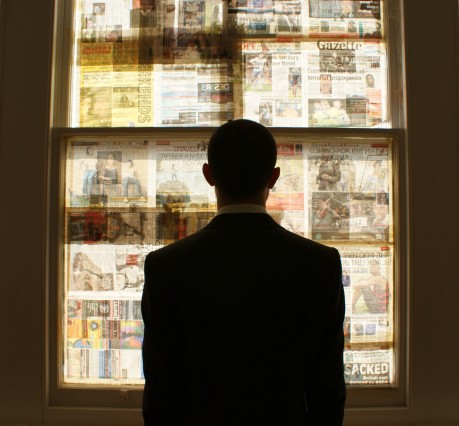
Needless to say, the music of Midnight Davis is unlikely to turn anybody off. His music is a slow rush, a dark high, a dense, heavy sound that seems to expand as you listen to it. Turn down the lights, stick Severance on your stereo, and let that intoxicating black smoke flood your consciousness…
Words: Kier Wiater Carnihan
Photos: Aya Arden
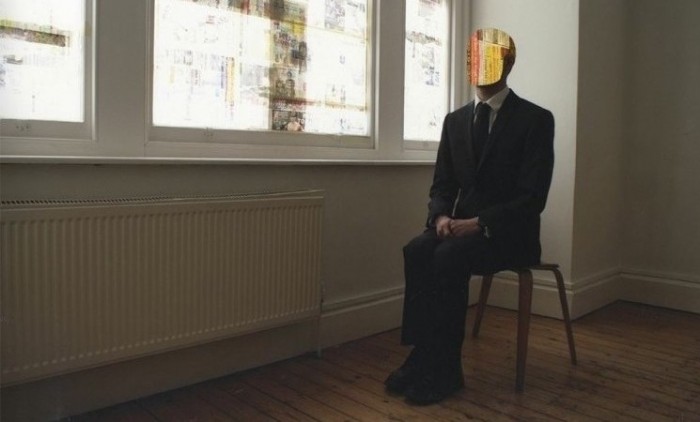
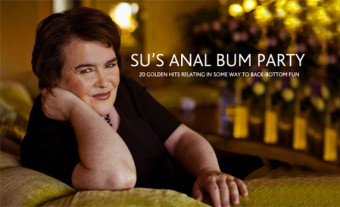

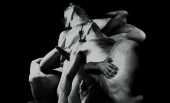

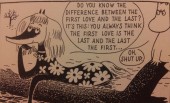
Follow us
Follow us on Facebook Follow us on Twitter Follow us on Google+ Subscribe our newsletter Add us to your feeds